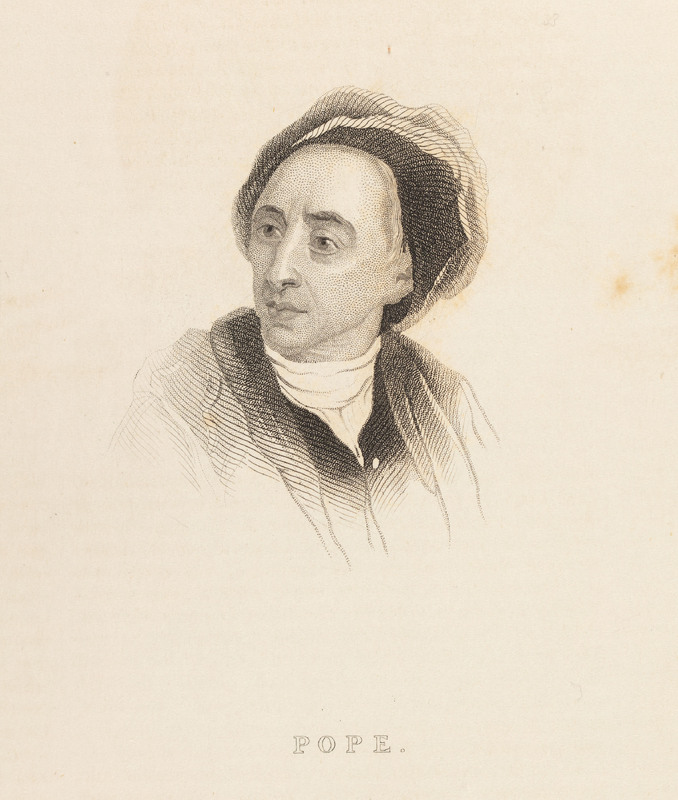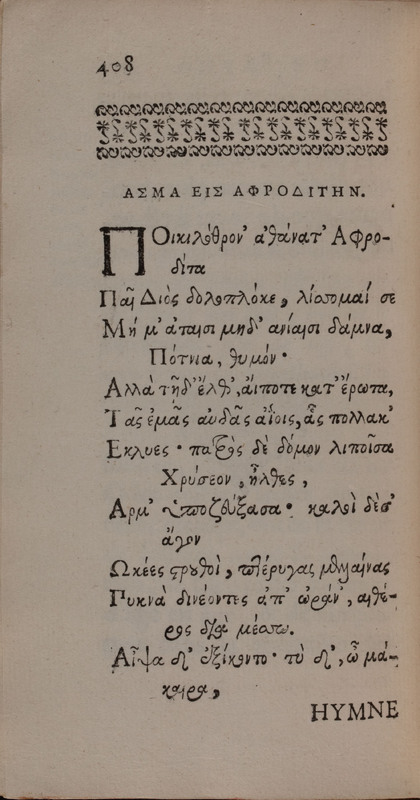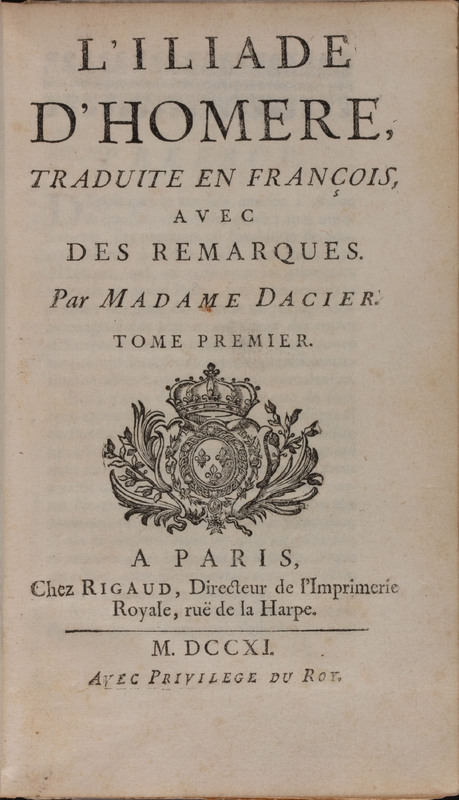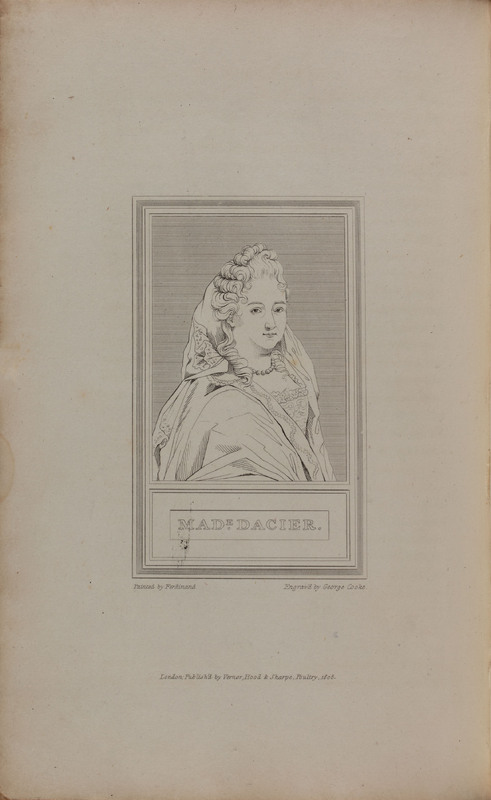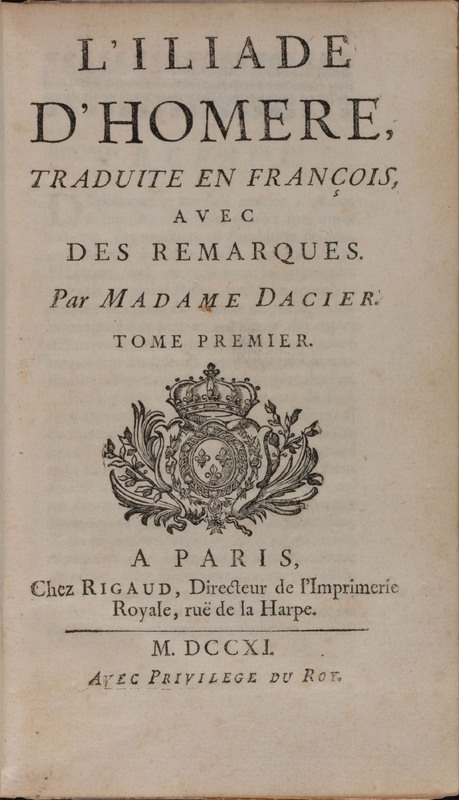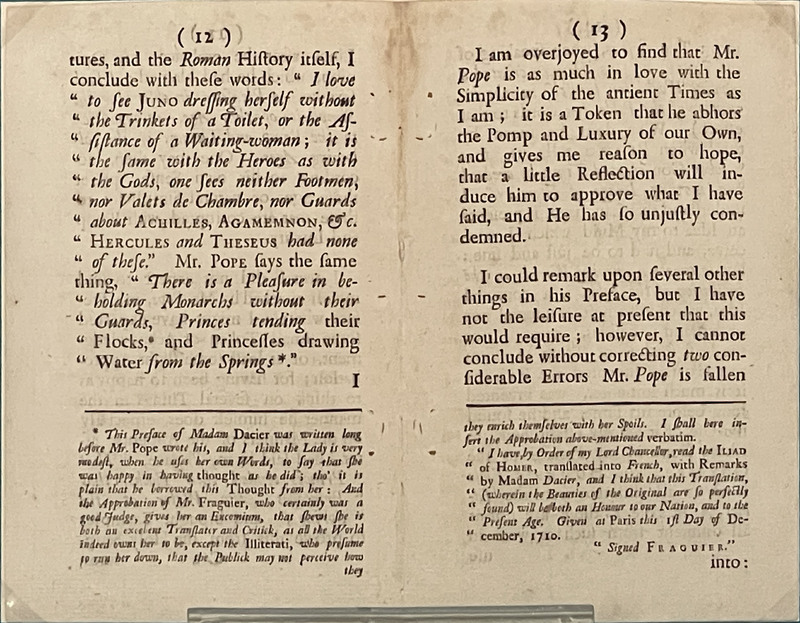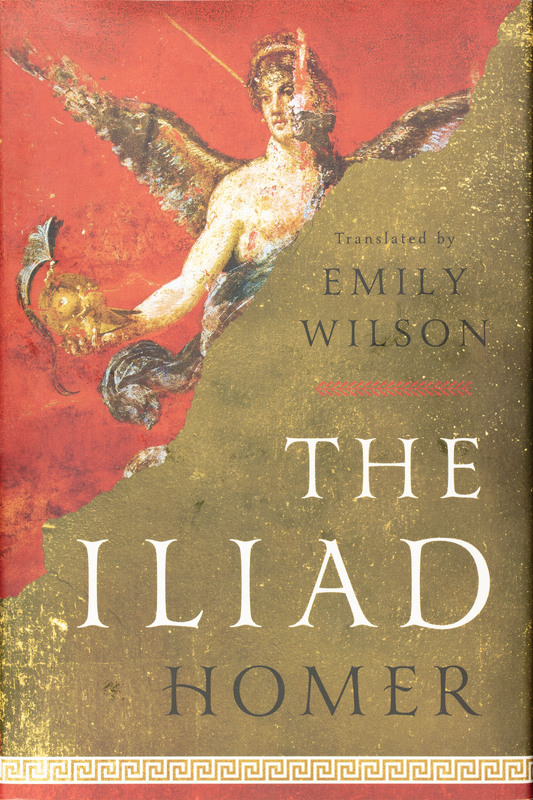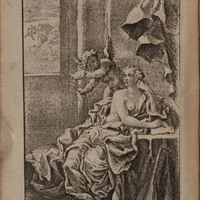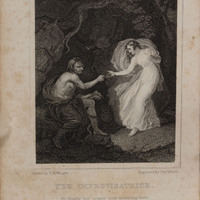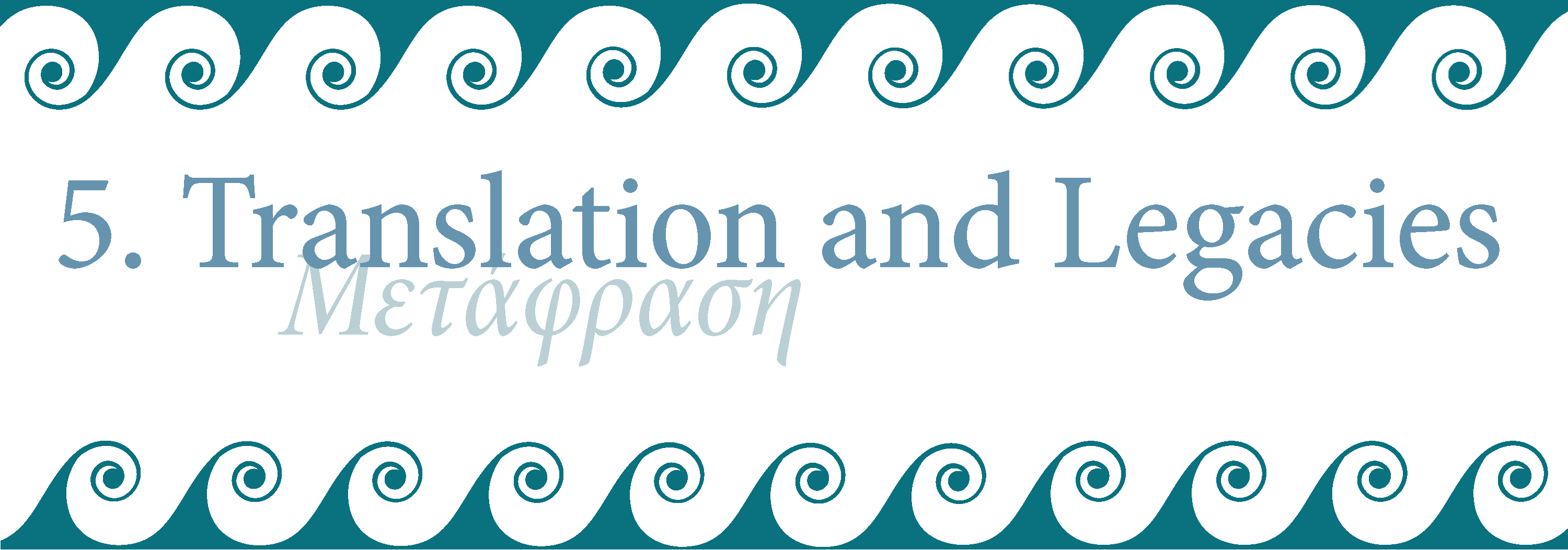
“Ideally, literary translators should not grind the beef, pork, and lamb of their originals into an unidentifiable hot dog. … My task was to make this ancient poem … feel vividly, unarguably alive.”
Emily Wilson, from her translator’s notes to The Iliad
Anne Le Fèvre Dacier (1647-1720) was one of the great humanists of the seventeenth century, a translator, scholar, and commentator on classical works. Her edition of Les poësies d’Anacreon et de Sapho (1681) was the first to feature her (maiden) name on the title page, giving her full public credit for her work. Though she followed the by-now familiar editorial style of providing Sappho a nice husband and happily married life in the biography, and thus lent her a sort of respectability, Dacier herself was somewhat scandalously legally separated from her first husband and so published under her maiden name before marrying again a few years later. Dacier’s translation of The Iliad (1711) also provided much of her lasting fame as it was designed to be an accessible edition for the general public rather than just for scholars.
Alexander Pope (1688-1744), the English poet primarily remembered today for his satires, published his translation of The Iliad of Homer in 1715-1720. Dacier was enraged when his preface “gave homage” to (borderline plagiarized) her own commentary on the aesthetics of the original Greek poem. The last work she ever wrote was a seventeen-page repudiation of Pope’s translation that was appended to the second edition of her Iliad, and then translated into English in 1724. This feud is particularly illuminating in the context of women writers generally in the seventeenth and eighteenth centuries. While Dacier was the most famous of classical translators in her time and place, there were many more women who were also scholars, as well as poets, playwrights, and scientists, who likewise received vicious opprobrium during their lifetimes or posthumously as a way to diminish their achievements. Pope, a particularly notorious misogynist, was fond of addressing women writers as “Sapphoes” and especially as “dirty Sapphoes” – insulting their hygiene and appearance in shades of Daumier, along with the quality of their writing.
In 2018, Emily R. Wilson (1971-) became the first woman to translate The Odyssey into English; The Iliad followed in 2023. Like Dacier, Wilson’s translations are for popular audiences, and her language choices emphasize accessibility and clarity. Particular critical attention has been paid to her decisions regarding the roles of women in these stories, as well as the intellectual honesty in identifying characters specifically as slaves rather than obfuscating their class identities as “servants” or “maids.” In shades of Simone Weil’s pacifist The Iliad, Or, The Poem of Force (1940), Wilson continually shows that Homer’s heroes frequently aren’t heroic, and that the world of ancient Greece was far from any kind of ideals that modern readers might imagine.
Works Included
